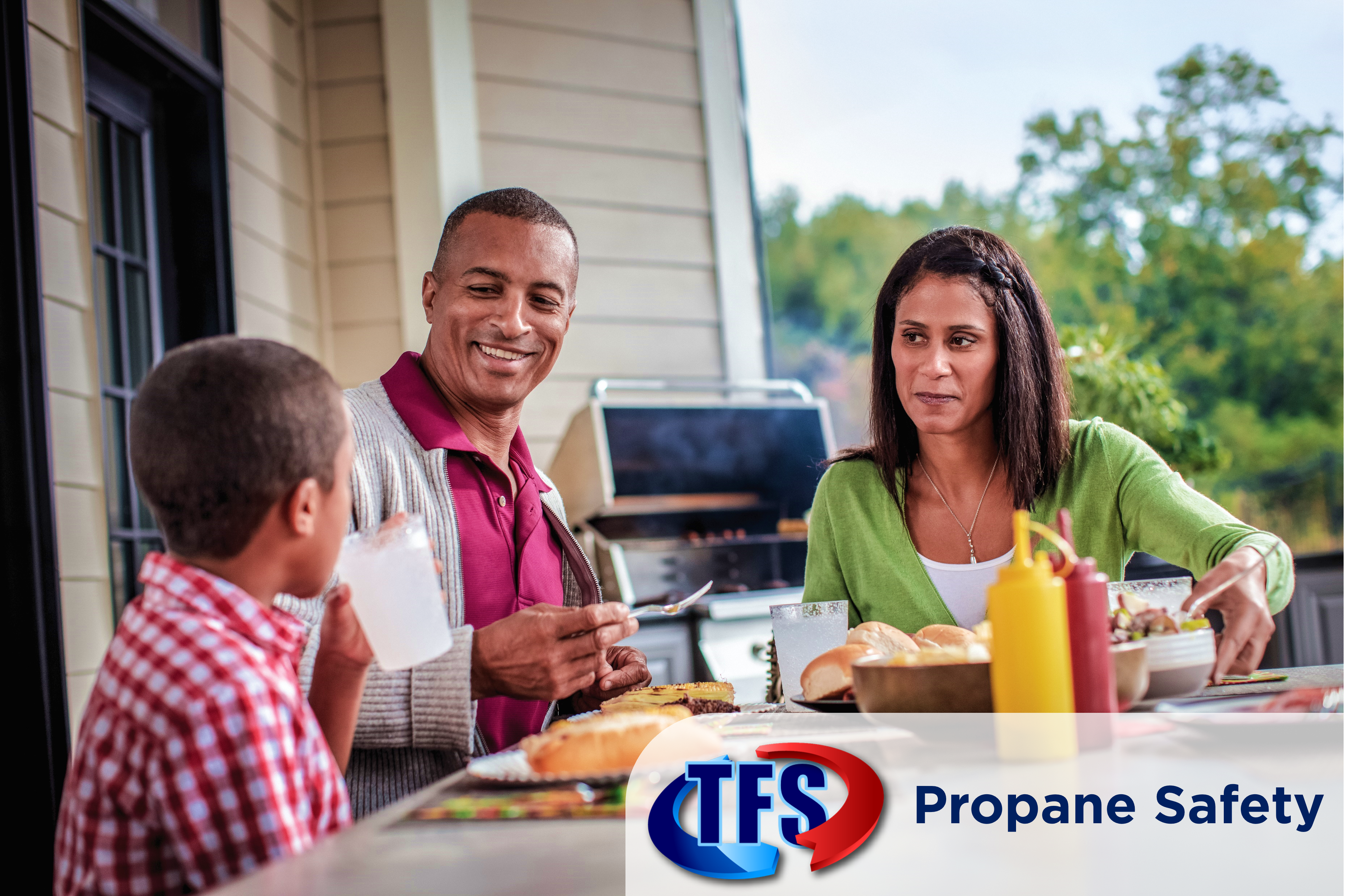Utilize These 5 Preventative Measures For Summer Propane Safety!
The key to safety for all fuels is proper use and handling. Propane’s characteristics, along with the regulations applied to the equipment, training, storage and handling, make it one of the safest fuels for customers to use. In order to protect you and your family and to minimize accidents or emergency situations, follow these summer propane safety tips:
1. Maintain Your Tank
At all times, tanks and cylinders should be clear of snow, ice, debris, weeds and any combustible materials. Always make sure to keep the path to and around your propane equipment clear so that your driver can safely complete your delivery.
Propane tanks also require inspections to ensure everything is working properly. For your safety, please become familiar with the features on your propane tank or cylinder.
At minimum, you should know how to turn off your propane supply in the event of an emergency. You can access this service shut-off valve as well as other components under the dome, or lid, located on top of your propane tank or cylinder. When you’re not accessing these components, be sure to keep the lid closed to protect the regulator from rain, snow and other elements.`
2. Make Sure There’s Always Propane in Your Tank
Tanks are filled to a maximum level of 80% to leave room for gas expansion. When the tank level is extremely low, you may detect a very concentrated odor, which may be mistaken for a leak. However, what you’re detecting is the odorant that is added to propane as a safety measure to give it the rotten egg smell that triggers your attention. With little to no propane left in the tank, the odorant settles to the bottom and you are left with more of it in proportion to the propane. Avoid false alarms by ensuring there is always some propane in your tank.
An empty tank could also result in rust buildup, which is hazardous because the rust masks the smell of propane, preventing you from detecting a possible leak.
To avoid running out of propane, consider adding a tank monitor to your tank, which automatically sends tank level updates so you always know how much propane is in your tank. If you’re on Will Call Delivery, monitor your tank level regularly and contact Total Fuel Service when the level reaches 30%. This gives us enough time to schedule your next delivery. Or switch to Automatic Delivery for the most convenient delivery method.
3. Practice Appliance Safety
To keep you and your family safe, use and maintain propane appliances as directed. Ensure the indoor and outdoor vents and air inlet ducts for all appliances are not corroded or blocked, and that they are open and/or turned on. Always refer to the manufacturer’s operating manuals for proper operating and maintenance instructions.
Before the start of each heating system, have your appliances and entire propane system inspected. Only a qualified service technician or certified partner should install, inspect, service and repair your appliances to ensure safe and reliable operation. Do not try to modify or repair valves, regulators, connectors, controls or other appliance and propane tank parts.
Everyone has a role to play in safety at home. Let your children know it’s important to never turn on propane appliances without parental supervision or play on or around propane storage tanks. Ask them to stay away from shut-off valves and keep papers and toys away from furnaces, space heaters and fireplaces.
4. Follow BBQ Best Practices
Before firing up the grill for a delicious meal, make sure the tubes are clear and in good repair. Insects often build nests in the tubes that can cause serious blockages. If the fittings, flex hose or burners are worn or rusted, be sure to replace them. Only use your grill outdoors in a well-ventilated area, and never leave it unattended while operating. Clean the burners and grill regularly to minimize the risk of a grease fire.
Store and handle portable cylinders, such as barbecue cylinders, in an upright position away from heat or sources of ignition and in a secure, well-ventilated outdoor area. Do not place your cylinder in household garbage or recycling containers. Contact your municipality regarding disposal options.
5. Renovate Safely
Before you dig when making an addition to your home or building, doing major landscaping or installing fence posts, be sure to call Total Fuel Service at (860) 855-3835 if underground tubing or piping brings propane to your house or business. We’ll give you advice and support based on your unique situation and propane setup.
Speaking of home makeovers, don’t forget about your propane tank. Rusty, unpainted or dark-colored tanks don’t reflect sunlight and may absorb heat, causing an increase in pressure and leading to a possible discharge from the pressure release valve. Please contact Total Fuel Service prior to repainting your tank.

